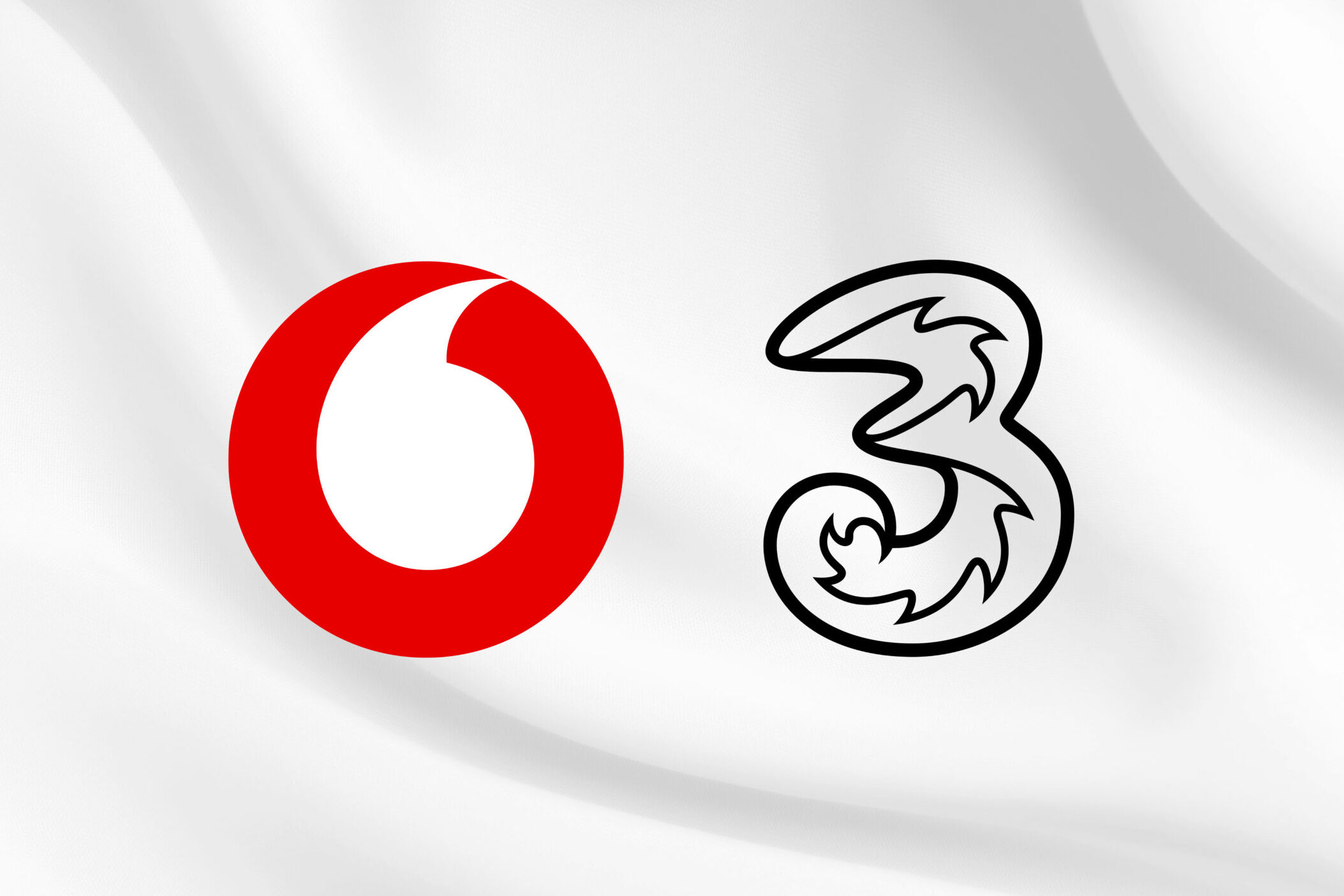Two-in-five nurses see lack of investment in new technologies as the biggest barrier to NHS transformation.
- As the NHS celebrates its 75th Anniversary, new polling and economic modelling commissioned by Vodafone UK indicates technology holds the key to ensuring its sustainability for the next 75 years.
- 5G could lead to savings of almost £1 billion a year for the NHS, the equivalent of 15,400 full-time nursing posts.
- Two-in-five nurses see lack of investment in new technologies as the biggest barrier to NHS transformation.
- Majority (89%) of nurses would like a say on which challenges new technology should address.
- Proposed merger of Vodafone UK and Three UK will see £11bn invested into 5G in the UK, providing every hospital with access to standalone 5G by 2030.
- Vodafone encourages government and NHS decision-makers to join technology suppliers to drive investment, education and partnerships that deliver the full potential of connected healthcare.
As the NHS approaches its 75th anniversary, new One Poll research commissioned by Vodafone UK shows that two-in-five NHS nurses believe the biggest barrier to digital transformation in the NHS is lack of investment in new technologies. Not enough training for staff (29%) and technology roll-outs taking too long (28%) were also cited as obstacles.
Merger of Vodafone UK and Three UK to create one of Europe's leading 5G networks
Vodafone Group and CH Hutchison Group Telecom Holdings Ltd., owner of Three UK, have agreed to combine their UK businesses.
New modelling from WPI Economics, on behalf of Vodafone UK, highlights the potential to create cost- and time-savings – estimating that 5G technology could lead to savings of almost £1 billion a year for the NHS, equivalent to 15,400 full-time nursing posts. This view is backed by nurses, with 90% saying technology will improve services over the next five years.
The modelling took into consideration the benefits of remote patient monitoring – where check-ups and monitoring take place from home – liberating patients and practitioners from a more rigid, timetabled approach to medicine and freeing up beds for those most in need. The findings clearly demonstrate the value of investment in technology for the NHS and the significant impact this can have on healthcare, ultimately supporting better patient outcomes.
The proposed merger of Vodafone UK and Three UK would see £11bn invested into 5G in the UK, enabling the NHS to have access to one of the most advanced connectivity networks in Europe with every hospital connected to standalone 5G by 2030.
The polling of NHS nurses follows new consumer research which showed that two-in-five (40%) of the public report being frustrated with healthcare in the past twelve months. Healthcare tops the list (31%) when asked which area of society would most benefit from 5G, ahead of utilities like water and energy (21%) and railways (20%).
5G can improve society more than AI, says British public, as Vodafone/Three merger paves the way for £11 billion 5G investment
The finding that over half of UK adults believe 5G has the potential to improve their day-to-day lives follows the news of Vodafone UK's planned merger with Three UK to accelerate the delivery of a world-class 5G network.
The benefits of tech are already recognised by nursing professions, with 59% of NHS nurses agreeing that they now have more time to spend on care thanks to tech. There is also an appetite to know more, with a further two-thirds (64%) saying they’re interested to know more about digital transformation, indicating strong engagement with the role technology can play in improving the NHS. Meanwhile, nearly half (46%) are optimistic about the potential of technology to transform their day-to-day work.
The survey of 500 NHS nurses across the UK also highlighted nurses’ high levels of digital engagement and understanding, with 71% of nurses polled saying they have a good or excellent understanding of 5G, compared to 38% of the general public. A similar sentiment could be seen regarding the roll-out of 5G across the UK, with 76% of nurses being excited, compared to 53% of general population.
Anne-Marie Vine-Lott, Director of Health at Vodafone UK, said: “Nurses are some of biggest advocates and adopters for the use of technology in healthcare and are highly engaged in the NHS’s use of digital technologies. Like us, they recognise how technologies like 5G Standalone can unlock huge benefits for patients and the NHS workforce – so now’s the time to listen to them and act.
“At Vodafone, we’re committed to working with healthcare providers to overcome barriers and support the more effective use of technology in the NHS – supporting investment in the right areas, at the right times, and with the right help to make every new tech rollout a success for patients and staff.”
Deploying tech to see faster medical test results was a topic that united the public view with that of nurses, with 62% of nurses and 41% of the general public agreeing. Nurses were also optimistic about the potential of electronic patient records (44%) and better data sharing (43%) to improve the patient experience.
How the 5G GigaCube is keeping surgeons and gamers connected
From living rooms to operating theatres, 5G-powered routers like Vodafone’s GigaCube can provide fast and reliable internet connections – a potential lifeline where traditional fixed-line broadband isn’t available or isn't fast enough.
Thinking about how the new technologies are used, the majority (90%) of NHS nurses would welcome the opportunity to input into how the roll-out of new technologies are communicated to them and their colleagues. Around half (52%) said that when new technologies had been introduced in their department in the past, they’d been given lots of information about the change, but not all of it was useful. Just over half (51%) think that the NHS should learn from private healthcare about the effective use of technology.
The initial launch of Vodafone’s 5G Standalone network will offer a glimpse of what is possible in the digital future, while the merger will give the two companies the scale required to invest £11 billion over the next decade. Altogether, this will create Europe’s leading 5G network, support the Government’s 5G ambitions, drive digital transformation and create jobs.
Stay up-to-date with the very latest news from Vodafone by following us on Twitter and LinkedIn and signing up for News Centre website notifications.
-Ends-
Notes to editors
Economic modelling methodology
The 5G rollout modelling by WPI Economics combines estimates of the productivity and the economic growth benefits of 5G. It draws on a range of studies to estimate an average benefit, with evidence drawn from the regional rollout of the 4G network. The 5G rollout scenarios are informed by the differing speeds of 4G’s rollout across UK regions. The 5G case study analysis draws on a wide range of publicly available data sources and studies, to estimate impacts of specific 5G use cases – including DfT Passenger Charter, LGA Revenue Data and HM Treasury Expenditure Analysis. The methodology also draws on official government guidelines (such as DfT’s TAG book) and well-documented case studies (such as the Liverpool 5G testbed). All modelling figures have undergone a rigorous quality assurance process. Modelling looking at 5G social care found:
- 5G-powered health and social support would enable patient care to be done remotely. Those in need of care could be supported via high-quality, high-speed video connections, which would allow for more – and higher quality – remote care.
- Based on information from early trials, WPI analysis finds that the NHS could save up to £1 billion a year if the 5G support was rolled out nationwide – equivalent to 15,400 full-time nursing posts. Between 2023 and 2038, the benefits could reach £17.5 billion.
- Benefits extend beyond cost savings: WPI estimates that the quality-of-life improvements associated with installing 5G-powered social care technologies could be worth £1.4 billion – a figure that is due to grow as the population ages.
One Poll methodology
One Poll surveyed 500 UK nurses between 24 and 26 May 2023.


![crowd-at-the-concert[Adobe_Stock] stock photo of a crowd of people holding up their phones at a concert](https://www.vodafone.co.uk/newscentre/app/uploads/2023/06/crowd-at-the-concertAdobe_Stock.jpg)


